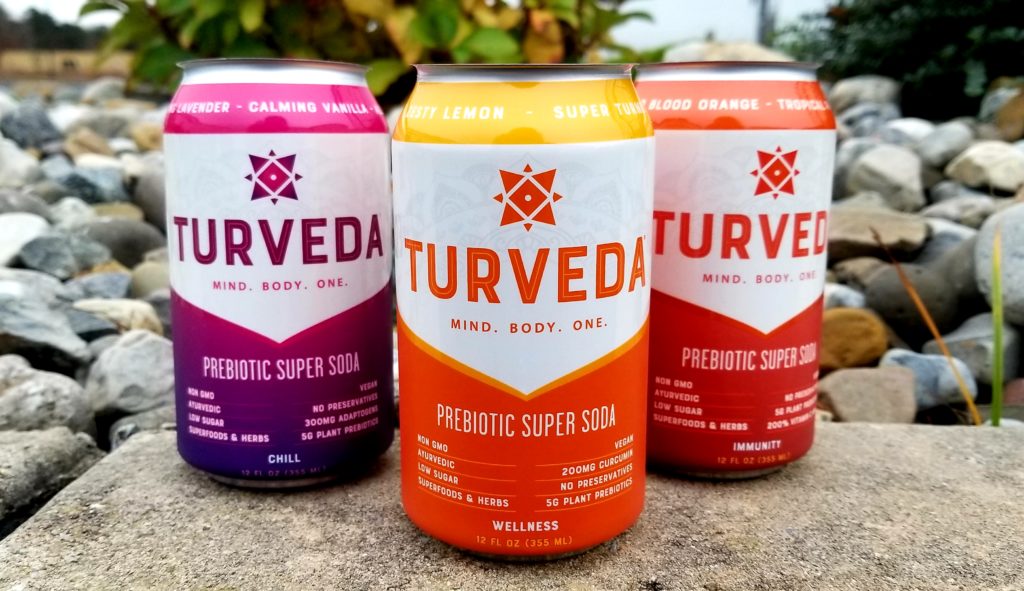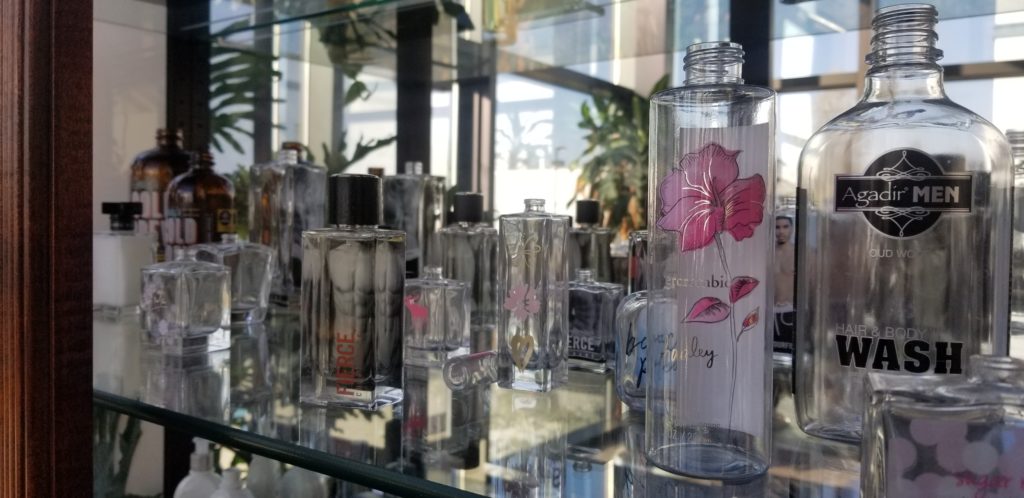Getting customers to notice your product can be difficult given the many options out there. But don’t worry, because there’s a simple and cost-effective solution to this problem — improving the label may boost your product’s visibility and give it the push it needs to succeed.
This begs the question: Which type of label should you go with — a shrink sleeve or traditional pressure-sensitive label? In this blog, we’ll compare the two labeling types so you can decide which is better for your product. Let’s start with definitions first.
What is a shrink sleeve label?
A shrink sleeve label is a flexible, pre-printed film that is slipped over a container and applied with heat so that it would conform to the shape of the container.
In the 1960s, shrink sleeves were only applied to the neck and cap of bottles to form a tamper-evident seal. But by the 1990s, they were being used to cover entire packages.

What is a traditional pressure-sensitive label?
Pressure-sensitive labels, also known as PS labels, are self-adhesive labels that require pressure to get them to stick to containers.

How do shrink sleeve labels and pressure-sensitive labels compare?
PS labels are still the most used labeling solution in New Jersey and the rest of the United States, but shrink sleeves are growing in popularity for a number of reasons.
1. Design
A great way to promote a product is to attract the attention of consumers with eye-catching labels.
A PS label can be customized for various packaging shapes, but it can be limited in terms of coverage of the container since it can only adhere to flat or curved surfaces. Conversely, a shrink sleeve provides 360-degree coverage, covering every nook and cranny of containers of any shape, even irregularly shaped ones. This gives you the flexibility to experiment with uniquely shaped containers that stand out on store shelves.
Moreover, since shrink sleeves can support full-container decoration, you have more room for striking designs. You can also use that space to display information so people can better understand your product, messaging, and brand, which can entice them to purchase your product.
2. Durability
The durability of PS labels depends on several factors such as:
- Materials used for the label – glossy white paper, flexible film, metallized silver paper
- Function of label’s adhesive – permanent, removable
- Material the label will adhere to – plastic, metal, glass, cardboard, aluminum
- Condition of the surface the label will adhere to – smooth or textured, clean or oily
For example, PS labels better adhere to flat, smooth, and clean surfaces and ones that have high energy such as metal and glass. Those with permanent adhesives are also more durable than removable ones.
However, even PS labels that can withstand harsh environments are no match to the adherence of shrink material. Shrink sleeve labels can be used in humid or moist environments, such as refrigerators and showers. They are completely waterproof, making them ideal labels for beverages.
Another great thing about shrink sleeves is that their graphics are printed on the reverse side of the film, making them resistant to scuffing, abrasion, heat, humidity, chemicals, and UV light degradation. This means a shrink sleeve label is more likely to retain its appearance when it reaches store shelves.
3. Production time
PS labeling does not require heat, water, or solvent to adhere to containers, making it a quick and straightforward labeling solution. There are also no additional steps required when it comes to designing the label, unlike with shrink sleeve labels.
With shrink sleeves, you will need to make adjustments to the artwork to accommodate distortions caused by shrinking on areas where the container is not flat. For example, a circle on your label design may appear egg-shaped prior to shrinking. So if your container has a lot of curves and edges, designing a shrink sleeve for it may require more thought and multiple print samplings to achieve the desired look.
This shouldn’t be a problem if you work with a professional labeling services provider. After you send them a sample container, they will be able to provide you with a template to help you with your design. They will also add distortions to the artwork so that it will shrink proportionally onto the container.
In terms of applying the label, shrink sleeves usually take longer than PS labels because they require specialized machinery for cutting, seaming, and placing the sleeves on products. Afterward, they undergo another process to shrink them onto containers. However, ensuring proper alignment of labels is simpler and faster with shrink sleeves than with PS labels.
4. Cost-effectiveness
In general, shrink sleeve labels cost roughly 25% more than PS labels. They can even be more expensive if shrinking is done by hand since this process can be labor-intensive. However, shrink sleeves offer 150% more “labeling real estate” versus PS labels that brand owners can use to connect with their customers.
What’s more, since shrink sleeves can be extended over bottle caps (like with lip balms) or just added around caps (like with some medicine bottles), you can incorporate tamper-evident seals into your packaging at a lower cost than with alternatives such as a drop-band closure. This also saves time in production since labeling and sealing are consolidated into one simple process.
Not only that, but shrink sleeves can also reinforce the strength and rigidity of your product’s packaging, allowing you to switch to more lightweight and less expensive packages.
5. Impact on sales
Brands don’t shift to shrink sleeves because of the cost — they choose to do so because these can make their products stand out from competition. In fact, a packaging study by AC Nielsen showed that consumers consistently respond more positively to shrink sleeves on highly contoured bottles as opposed to those with plain labels in all five categories: attention, uniqueness, package impact, empathy, and appeal. Not only that, women and early adopters were three times more likely to indicate a desire to purchase and willingness to pay for contoured bottles with shrink sleeves than those with plain labels.
Still unsure which labeling type to go with for your product? Turn to Pro-Motion Industries, New Jersey’s most trusted contract labeling services provider since 1994. Give us a call today at 856-809-0040 and we’ll help you choose the labels that can meet both your functional and budgetary needs.
